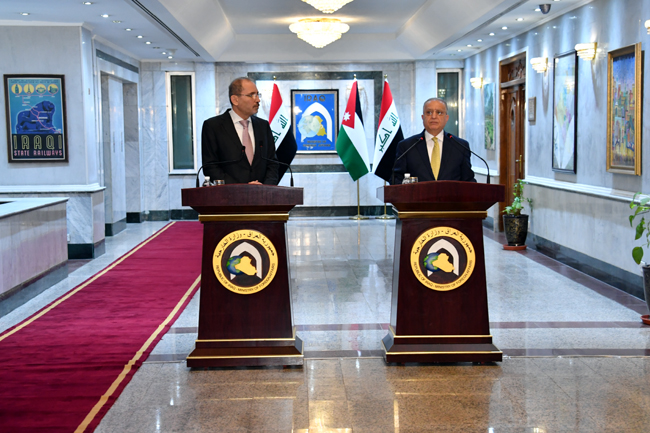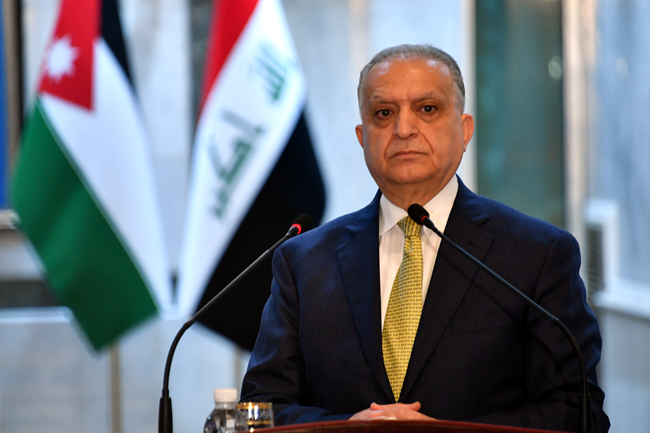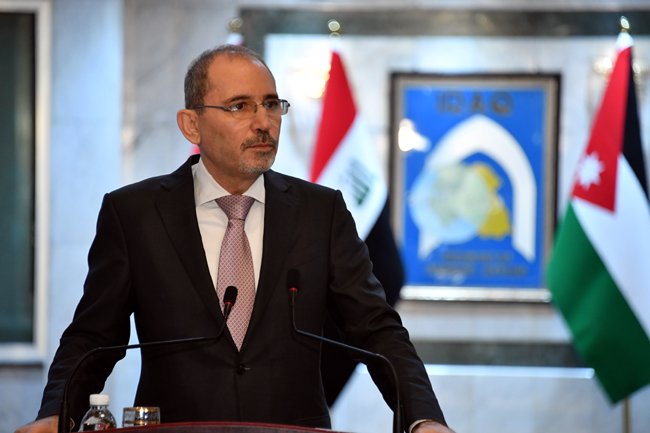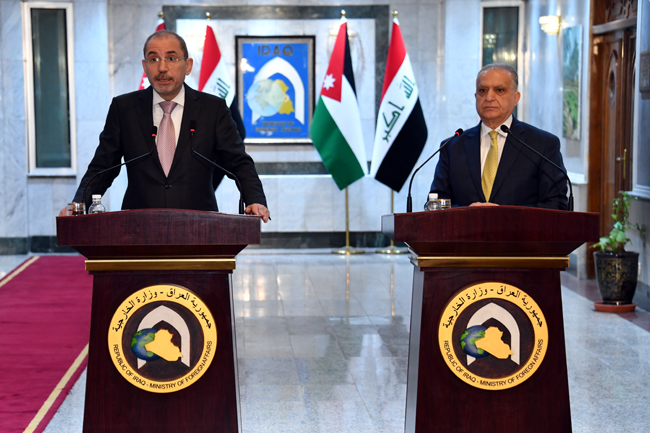Foreign Minister Receives his Jordanian Counterpart
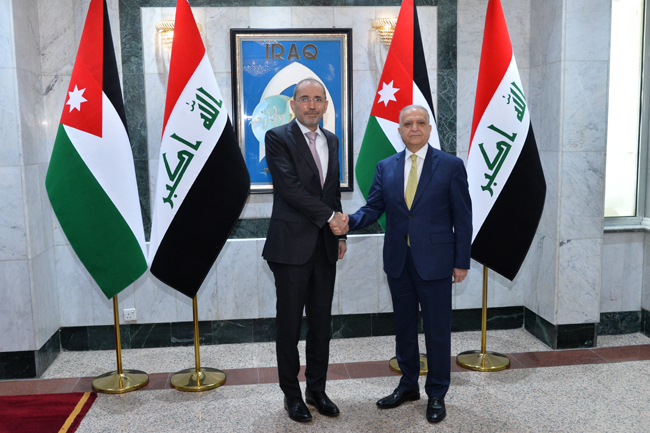
Foreign Minister Mr. Mohamad A. Alhakim received the Foreign Minister of the Hashemite Kingdom of Jordan Mr. Ayman Al-Safadi, and they discussed several bilateral issues at the local level, and they also discussed issues of concern to both countries at the regional and international levels.
Minister Al-Safadi started the meeting with a message of reassurance by King Abdullah II about the health of the supreme religious authority, His Eminence Grand Ayatollah Sayyed Al-Sistani, expressing his wishes for a speedy recovery.
On his part, Minister Alhakim expressed his appreciation for the content of the message, praising the brotherly relations that link Baghdad and Amman.
The two sides affirmed the necessity of strengthening historical relations, advancing cooperation in various fields: (political, economic, cultural, and social), and coordination in international and regional forums on issues of common concern.
The two Ministers stressed the importance of working to support Iraq’s efforts to be a factor of stability and harmony in the region and the world, support its efforts to confront terrorist organizations, and focus on reconstruction efforts.
The two Ministers also affirmed their rejection of Iraq to be an arena for conflicts and settling scores. Referring to the recent rejection and condemnation of the attacks that targeted Iraqi territory, since these attacks represent a flagrant violation of the sovereignty of Iraq, the safety of its people and a violation of the provisions of international law.
The two ministers also discussed de-escalating tensions in the region between Iran and US, to spare the region the threat of wars, and the need to keep Iraq away from regional rivalries and bias politics.
The two Ministers warned that any escalation in the region will enhance the ability of terrorists to reorganize their remnants, undermine the efforts of the international community in fighting Da’esh terrorist organization and threaten to ignite more conflicts in the region, and concluded the talks by emphasizing the need to respect the sovereignty of states, not to interfere in internal affairs, and to support initiatives that lead to political solutions in Syria, Libya and Yemen.
